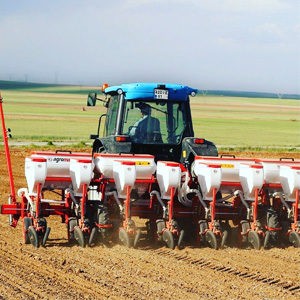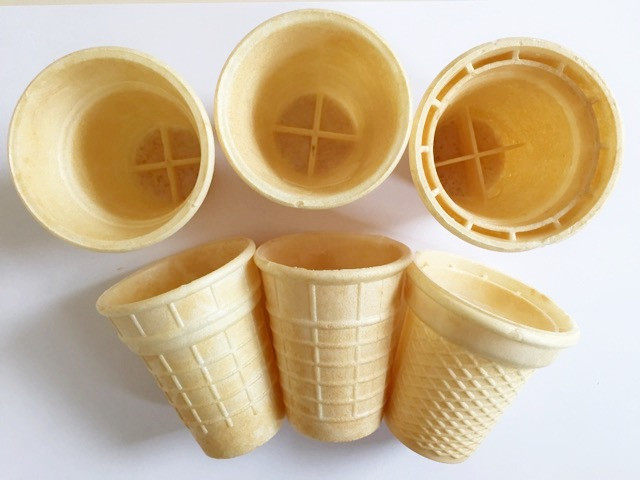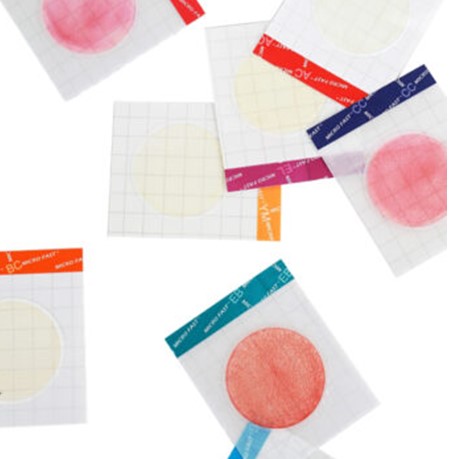EEC Minister announced a change in approach to food security

The changes that are taking place in the world after the start of the military special operation in Ukraine and the sanctions imposed by Western countries against Russia in response to it “definitely have a negative impact” on the functioning of the Eurasian Economic Union (EAEU), Artak Kamalyan, member of the board of the Eurasian Economic Commission, told RBC , Minister for Industry and Agro-Industrial Complex.
The EAEU countries (except Russia, it includes Armenia, Belarus, Kazakhstan, Kyrgyzstan) are economically interdependent, Kamalyan recalls. In recent years, cooperation between the members of the Eurasian "five" has expanded, including in the field of food trade, import supplies have been replaced by intra-union ones. As a result, when, due to external circumstances, individual members of the union are forced to restrict the movement of goods and the export of agricultural products, there is a threat to the food security of partner countries, Kamalyan notes.
In late April, at a meeting at the Eurasian Economic Commission, Kazakhstan expressed dissatisfaction with Russia's ban on grain exports to the countries of the Eurasian Economic Union. The Russian government banned grain supplies to the EAEU states, with the exception of Belarus, from March 15 to June 30. Also, from March 15 to August 31, it is forbidden to export sugar from the country (export to the EAEU states is possible with permits issued by the Ministry of Agriculture). In Kazakhstan, this decision was seen as signs of a violation of the agreement on the EAEU.
Kazakhstan planned to challenge Russia's ban on wheat exports to the EAEU, Kommersant reported. But from a legal point of view, it is impossible to challenge this ban, says Kamalyan: Article 29 of the treaty on the EAEU provides that countries can impose restrictions on mutual trade in goods when the issue concerns national security.
The ban was prompted by the need to close the “outer loop” and solve the problem of re-exports to third countries, which are made profitable by the difference in price due to duty-free trade: “But for countries that suffer from restrictions, these measures cause some concern.”
In the EAEU, it is important to decide on an approach to the issue of food security, Kamalyan notes: “If we understand it as collective food security for all five countries, when the food supply of a resident of Lipetsk does not differ from that of a resident of Alma-Ata, and everything that is available to a resident of Lipsk is available a resident of Alma-Ata is one approach. But if we assume that the food security of the EAEU is only the sum of the food capabilities of five separate countries, then this is a completely different approach.”
Belarus has limited the export of buckwheat, sugar and SALT from the country Economics
The concept of common food security for the EAEU countries has not yet been implemented, but over the past few years it has been discussed through the implementation of separate mechanisms, RBC's interlocutor explains. Regionalization, or so-called smart specialization, is beneficial to countries, he believes. For example, Kyrgyzstan, due to its natural and climatic conditions, cannot effectively produce sugar beet and compete with Belarus in this market, but it is able to efficiently produce sugar beet seeds, which, in turn, Belarusian agricultural producers buy in third countries. “Naturally, when we have a common domestic market and duty-free trade, it makes no sense for Kyrgyzstan to produce sugar beet at a high cost and subsidize the industry from the state budget, because cheaper sugar can be supplied from Belarus.
But when Russia or Belarus impose restrictions on the supply of grain, sugar, the countries that traditionally import the lion's share of these products from these states find themselves in a very difficult situation: “And I am afraid that such cases will affect the national agrarian policy of the participants in the integration association in part of a greater localization of food production, even if it is not very economically feasible. In other words, everyone will produce everything and diversify suppliers.”
A possible solution to the problem of re-exports to third countries could be agreed unilateral tariff and non-tariff measures for exports, Kamalian says. According to him, the board of the commission gave a corresponding order. But consultations have not yet led to an agreement on the mechanism, the solution of the issue "has not yet reached its logical conclusion."
There is no shortage of food in the EAEU market now, Kamalyan emphasizes. In subsequent years, the efficiency of agricultural production may decrease due to logistical problems and rising prices for the material and resource base. “But, despite the possible decrease in production efficiency, food security will remain at a fairly high level,” Kamalyan notes.
General Food Intervention Fund
One of the ways to stabilize prices for agricultural products in the EAEU market could be the creation of a common food intervention fund. Such a mechanism is used in Russia to stabilize grain prices. The issue of creating such a fund has been repeatedly discussed by the EAEU countries, says Kamalyan. To date, they have agreed on common principles and approaches to food security, but this is “a very general document that does not solve the problem,” he notes. Kamalyan is convinced that it is necessary to move from common approaches to the implementation of mechanisms for collective food security, but today, "alas, not all countries are ready to support this idea."
Favorable course inFavorable exchange rate at VTB officesThe larger the amount, the greater the benefit.More than 1,000 branches across the countryPreliminary calculation inonline converterRead together with it:
- О самых распространенных причинах пожаров рассказали в МЧС2 октября, Минск. О самых распространенных причинах пожаров рассказал начальник главного управления надзора и профилактики МЧС Дмитрий Турчин на "Предупреждение чрезвычайных ситуаций в осенне-зимний период. Профилактика пожаров и гибели людей от них", которая прошла в БЕЛТА. "В республике наблюдается рост количества пожаров на 7,7%, и на 1......
- Боливия экспортирует говядину на сумму 797 миллионов долларов и вводит новые цифровые сертификаты для внешней торговлиЭкспорт говядины из Боливии в период с 2021 по 2025 год достиг 797 миллионов долларов. Китай является основным рынком сбыта этого мяса, на который приходится 74% продаж, сообщила Карина Серрудо, генеральный директор Национального таможенного управления. Параллельно с этим ведомство включило сертификат безопасности экспортных пищевых продуктов для говядины в систему «Единое окно для внешней торговл...
- Поголовье свиней в Бразилии продолжает растиТакже наблюдался рост убоя свиней на 1,2%, достигнув рекордного уровня в 2024 году, хотя рост сектора замедлился. Экспорт свинины также достиг исторического максимума. По географическому распределению Толедо (штат Парана) сохранил лидерство по производству свинины среди 5487 муниципалитетов, где ведётся свиноводство, на долю которого приходится 2,2% от общего поголовья (95......
- Bloomberg узнал о плане G7 значительно ужесточить санкции против РоссииНовый пакет санкций будет включать меры, в частности, против энергетики, финансов и военной промышленности, а также крупнейших нефтяных компаний России. Разработку пакета G7 планирует завершить в октябре, выяснил BLOOMBERG Страны «Большой семерки» (G7) приближаются к соглашению о значительном ужесточении санкций в отношении России, сообщает агентство Bloomberg со ссылкой на проект заявления. «Мы с...



























































